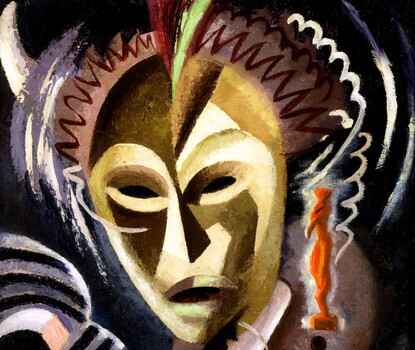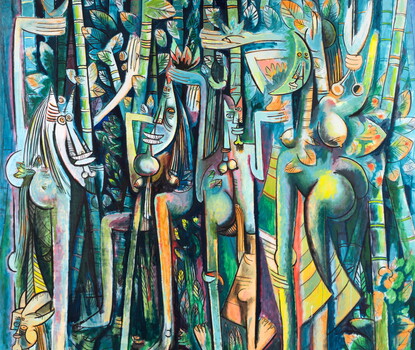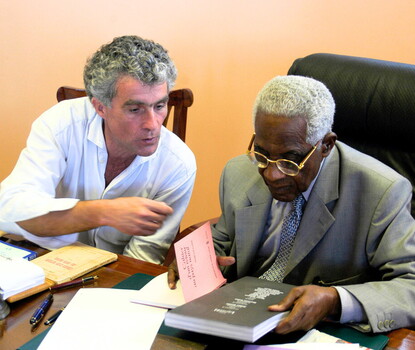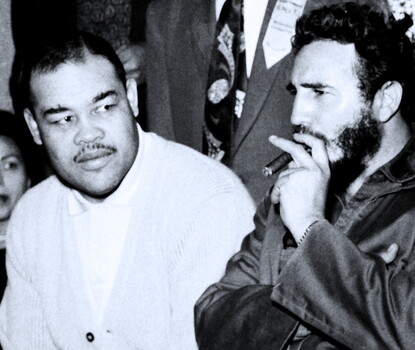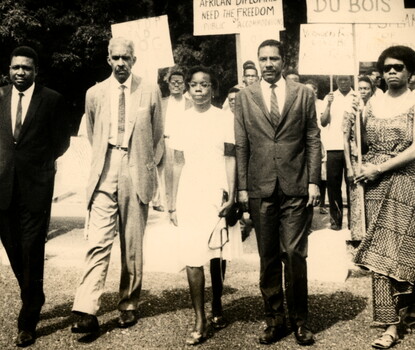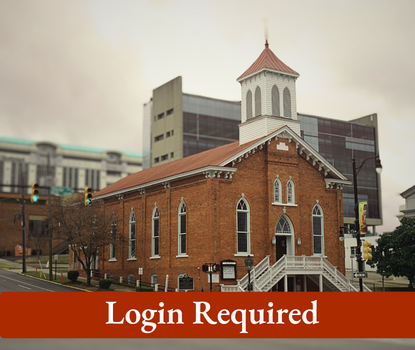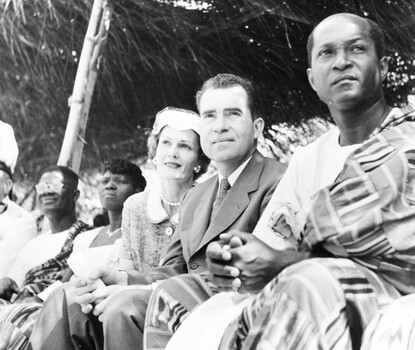Learn more about the Negrismo and Négritude movements and transnational Black anticolonial solidarity in the twentieth century. Topics may include:
Image Source: Jones, Loïs Mailou. Les Fétiches. 1938. Oil on linen, 25 1/2 x 21 1/4 in. (64.7 x 54.0 cm). Smithsonian American Art Museum. Museum purchase made possible by Mrs. Norvin H. Green, Dr. R. Harlan, and Francis Musgrave.

